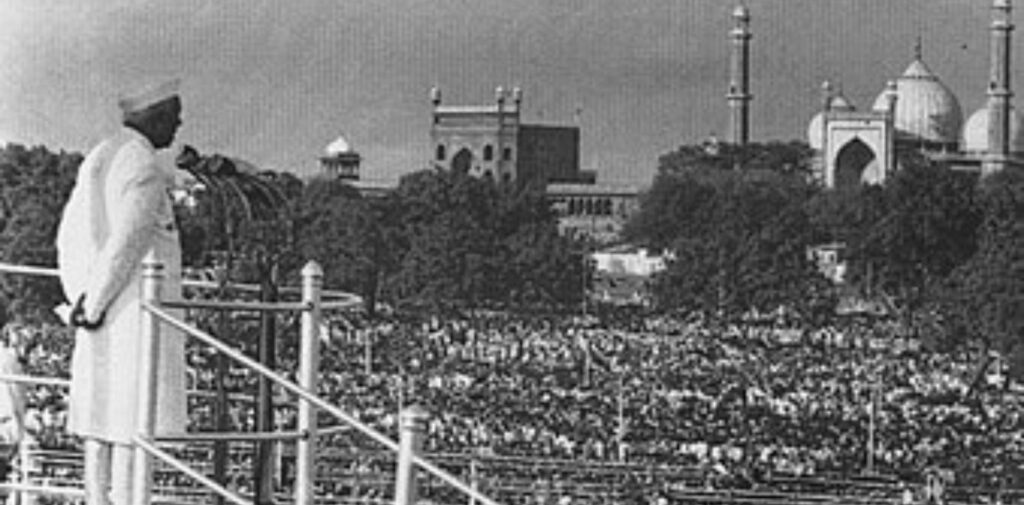India, since its independence in 1947, has undergone tremendous changes in its economy and society. One of the most important players in shaping India’s economy has been the public sector. Public sector enterprises (PSEs) refer to companies owned and operated by the government. These enterprises play a vital role in providing goods and services that help the country grow. But the role of these enterprises has changed over time. Let’s take a closer look at how public sector enterprises in India have evolved and what their role is today.

What Are Public Sector Enterprises?
Before we dive into the changes, let’s first understand what public sector enterprises are. These are companies or organizations that are owned by the government. The government may own these companies fully or partially, and the main goal of these enterprises is to serve the public interest, rather than just making profits.
Examples of well-known public sector enterprises in India include Indian Railways, Oil and Natural Gas Corporation (ONGC), Bharat Heavy Electricals Limited (BHEL), and Steel Authority of India Limited (SAIL). These companies provide essential services or goods that are necessary for the country’s development.
Early Years After Independence: Building the Nation
When India gained independence in 1947, it was a newly formed country that had a lot of work to do. The economy was weak, and there was a need to build industries, infrastructure, and provide jobs for millions of people. The leaders of the country believed that the government should play an active role in building and controlling these important industries.
At that time, public sector enterprises were seen as the backbone of India’s industrial growth. The government set up many public sector companies to focus on industries like steel, coal, power, and transportation. These industries were considered important for the country’s development. For example, Indian Railways was set up to provide an affordable transportation system for people and goods, while companies like BHEL were created to manufacture heavy machinery needed for building factories, power plants, and other infrastructure.
The Role of Public Sector Enterprises in Economic Growth
In the early years after independence, the role of public sector enterprises was crucial in helping the country become self-sufficient. The government wanted to avoid depending too much on foreign countries for goods, technology, and services. Therefore, these enterprises helped in building a strong foundation for the economy by producing goods and services that were needed domestically.
Public sector enterprises helped create jobs for millions of people, especially in the manufacturing and infrastructure sectors. They also contributed to the growth of important industries like steel, power generation, and telecommunications, which were necessary for a developing country.
The 1991 Economic Reforms: A Turning Point
However, by the late 1980s and early 1990s, the Indian economy began facing some serious challenges. The government was spending too much money, and the country was running out of foreign exchange. This led to an economic crisis in 1991, which forced the government to rethink its economic policies.
The government introduced economic reforms in 1991, which included opening up the economy to private businesses and foreign investments. This was a big turning point for public sector enterprises. The government began to believe that privatizing some public sector companies would improve efficiency, increase competition, and reduce the financial burden on the government.

The Changing Role of Public Sector Enterprises Today
With these reforms, the role of public sector enterprises began to change. Let’s take a look at some of the changes that have taken place:
- Privatization and Competition: One of the biggest changes in recent years has been the privatization of many public sector enterprises. Privatization means that the government sells its stake or ownership in a company to private businesses or individuals. This helps increase competition and can lead to better management of the company. For example, companies like Air India and BPCL (Bharat Petroleum Corporation Limited) are being privatized to allow private players to enter these industries. This is done to improve the quality of services and make these companies more efficient.
- Public Sector Enterprises Become More Competitive: In today’s world, competition is a driving force in business. Public sector enterprises used to be the only big players in many sectors, but with liberalization (opening the economy to private businesses), they now face competition from private companies. For example, in the telecom industry, BSNL (Bharat Sanchar Nigam Limited) used to have a monopoly on phone services in India, but now private companies like Airtel and Jio compete with it. To stay relevant and competitive, many public sector enterprises have had to adopt better management practices, improve their products and services, and focus more on customer satisfaction.
- Focus on Profitability and Efficiency: Earlier, public sector enterprises were mostly focused on serving the public interest and less on making profits. However, with the increasing focus on competition and privatization, there has been a shift toward making these companies more profitable. Many PSEs are now focusing on improving their efficiency, reducing losses, and finding new ways to increase profits. Public sector enterprises like ONGC and NTPC (National Thermal Power Corporation) have become leaders in their respective industries and contribute significantly to India’s economy. These companies have modernized their operations, invested in new technologies, and become more profit-driven.
- Public Sector Enterprises in Social Development: Even though many public sector enterprises have become more focused on profit-making, they continue to play an important role in social development. For example, Indian Railways is not just about making profits; it plays a huge role in providing affordable transportation to millions of people. Similarly, LIC (Life Insurance Corporation) provides insurance to people who may not be able to afford it from private companies. Public sector enterprises continue to play an important role in providing essential services like electricity, water, transportation, and healthcare, which are necessary for the country’s development.
- Global Expansion: In recent years, many public sector enterprises have started to expand globally. Companies like ONGC and Steel Authority of India Limited (SAIL) have started to explore markets outside India. This helps these companies grow, earn more revenue, and make India’s presence felt in the global market.

The Future of Public Sector Enterprises
The future of public sector enterprises in India seems to be focused on finding a balance between serving the public and making profits. While privatization may continue, public sector enterprises will still have a role to play in areas that are essential for the country’s development. Some industries, like defense, energy, and railways, are likely to remain under the government’s control because of their strategic importance.
There is also a growing emphasis on corporate social responsibility (CSR), where public sector enterprises contribute to the welfare of society, such as through education, healthcare, and environmental protection.
Conclusion
The role of public sector enterprises in India has changed significantly since independence. Initially, they were the backbone of the economy, helping the country develop and become self-sufficient. Over time, with the economic reforms of 1991, many of these enterprises had to become more competitive, efficient, and profitable. Some were privatized, while others expanded globally.
Despite these changes, public sector enterprises remain important players in India’s economy. They provide essential services, create jobs, and contribute to the country’s growth. As India continues to grow and evolve, public sector enterprises will continue to adapt to the changing economic landscape, while ensuring that the welfare of the people remains at the heart of their operations.




